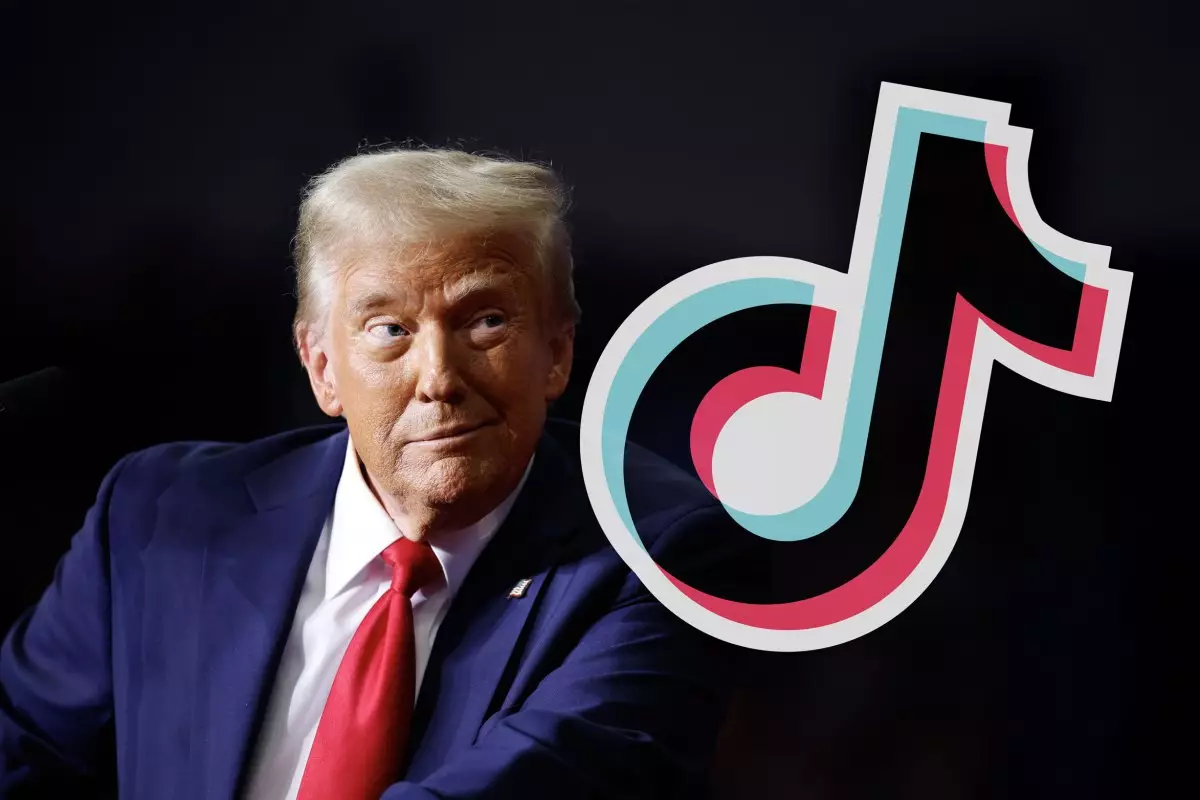In a surprising turn of events, President Donald Trump has recently chosen to extend the deadline for a potential ban on TikTok by an additional 75 days. This strategic decision arose just a day before a proposed ban was to be enforced, reflecting the complexity of the negotiations surrounding the app, deeply intertwined with both domestic politics and international relations. This extension is emblematic of a broader narrative—one that underscores the challenges of regulating a platform that has not only surged in popularity but has also become a crucial battleground for U.S.-China relations.
Trump’s announcement, shared on his Truth Social platform, indicated his administration’s proactive stance on reaching a viable resolution. By doing so, he emphasized the progress made towards a deal intended to safeguard TikTok’s operations in the U.S. However, it raises questions about the efficacy of governmental intervention in the technology sector, where the speed of decision-making often clashes with the ponderous nature of legal and diplomatic protocols.
The Players Involved
The marketplace of ideas and interests surrounding TikTok’s future is not a simple affair. Prominent investors—Oracle, Blackstone, and Andreessen Horowitz—have emerged as serious contenders to acquire TikTok’s U.S. operations. Alongside these, retail giant Walmart and various tech conglomerates have thrown their hats into the ring, reflecting the app’s commercial viability.
Yet, there exists a formidable obstacle: the Chinese government’s approval. ByteDance, TikTok’s parent company, has displayed reluctance to divest or lessen its stake in the popular platform, further complicating the negotiation landscape. This scenario paints a picture of competing interests that intertwine economic strategies, regulatory environments, and national security issues. It’s an arena where every player must consider the geopolitical consequences of their moves.
The Bigger Picture of Tariffs and Trade
The TikTok ban is not just about data privacy and national security; it is part of a larger chess game involving international trade, specifically with China. Trump’s imposition of sweeping tariffs—targeting an astonishing 34% on imports from China—highlights his administration’s aggressive stance towards trade imbalances. Yet, paradoxically, he expressed a willingness to possibly reduce these tariffs if it facilitates a deal regarding TikTok.
This move underscores a fundamental truth about modern economic policy: tariffs serve as both a tool of negotiation and a potential roadblock to bilateral cooperation. The stakes are dangerously high; retaliation from China, which has already announced a reciprocal tariff, showcases the fraught nature of trade relationships in the current climate. In essence, trade negotiations and tech regulations are inextricably linked, complicating the administration’s approach to securing TikTok’s future.
Trump’s Unique Approach to Digital Governance
Trump’s handling of the TikTok situation represents a broader philosophical stance towards digital governance. By attempting to broker a deal that deeply engages both Chinese officials and American investors, he is adopting a mercantile approach to cybersecurity, one where economic interests eclipse traditional diplomatic protocols. This reflects a growing trend in governance where technology companies are increasingly viewed through the lens of national security.
Moreover, Trump’s repeated insistence on needing “good faith” cooperation from China reveals a belief in negotiated solutions rather than unilateral action. This transitional approach—aimed at striking a balance between national interests and economic pragmatism—deviates sharply from the norms established by previous administrations.
The Social Media Maze: A Class Apart?
Finally, TikTok’s precarious position showcases broader implications for social media platforms at large. It raises significant questions about the future of digital free speech and the responsibilities of foreign-owned applications in the United States. As social media continues to evolve, the expectation of compliance with national laws grows, creating a dichotomy that many platforms will struggle to navigate.
In focusing on TikTok, the government is not merely responding to a popular app but is engaging with the very core of digital culture. How the administration ultimately resolves these challenging negotiations will set a precedent for future interactions between governments and technology companies. Whether they educate or regulate, one thing is clear: TikTok is emblematic of the intricate dance between innovation, geopolitics, and public policy in an increasingly digitized world.

